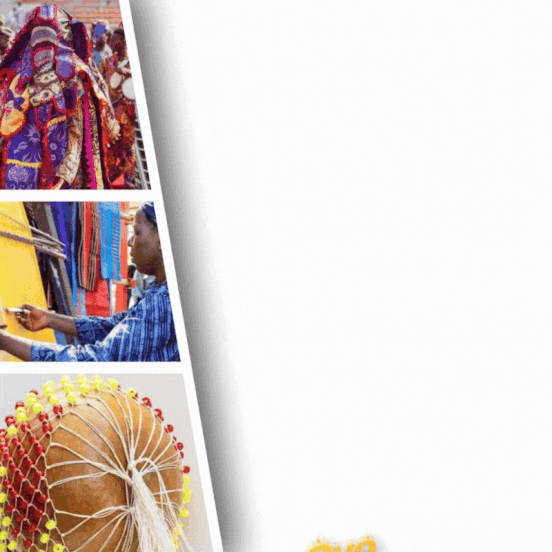In previous series, we’ve talked about the noisemakers, the comeback dreamers, and the tested fighters. However in Oyo State’s 2027 governorship conversation, Joseph Olasunkanmi Tegbe stands apart, not because he shouts louder, but because he barely shouts at all. Among the long list of possible contenders, from political heavyweights like Teslim Folarin to perennial aspirants like Bayo Shittu, Tegbe is that quiet technocrat and gentle politician many believe is long overdue for the main stage. His name carries that expected weight, but not controversy. He is perhaps the only aspirant whose biggest strength is also his greatest weakness: he has everything, except a win.
Born on March 21, 1966, in Oyo Town but of Ibadan ancestry, Tegbe hails from the Jegede compound in Labo area of Ibadan, a background that gives him a rare kind of geographic duality, one that potentially makes him appealing to both Ibadanland and the Oyo axis, two dominant power blocs in the state. He started his education at St. Mary’s RCM School in Oyo, proceeded to Federal Government College, Ogbomoso, and then to the University of Ife (now OAU), where he graduated with a First Class degree in Civil Engineering in 1988. Yes, he is not just a scholar but an outstanding one, winning national academic honours in his youth. His later studies at Lagos Business School, INSEAD (France), and both the Harvard Kennedy School and Harvard Business School further cement his global pedigree. Also, he is a Fellow of the Institute of Chartered Accountants of Nigeria (ICAN), Fellow of the Chartered Institute of Taxation (CITN), and holds a Governance of Enterprise IT certification (CGEIT). However, politics in Oyo State, like much of Nigeria, is rarely won by credentials alone. If it were, Tegbe would already be at Agodi.
True, over the last three decades, Tegbe has built one of the most impressive technocratic careers of any potential Nigerian governor you can imagine. As a Senior Partner at KPMG, he has chaired reforms, created public sector strategies, and consulted for state and federal governments across Africa. From ERP and IT transformation to fiscal restructuring, his experience spans sectors and countries. He has even worked with international development partners, advised African presidents, and led subnational delegations to investment missions in South Africa, India, China, Singapore, UAE, and Denmark.
Even more, he served as Head of Technology Advisory Services and Markets at KPMG, and also chaired the firm’s Cybersecurity and TMT practices in Africa. Moreover, In 2024, his reputation received another federal nod when President Tinubu appointed him as the Director-General and global liaison for the Nigeria-China Strategic Partnership, placing him in charge of executing major development agreements covering healthcare, education, agriculture, and digital infrastructure. Very clearly, this is not a man lacking in exposure or trust.

And yet, back home in Oyo, the political terrain tells a different story. While his name commands massive respect in Abuja boardrooms, on the streets of Iseyin or Ogbomoso, many still ask: “Tegbe? Who exactly is he politically?”
That question lingers aimlessly because Tegbe’s involvement in electoral politics has been cautious, even quite hesitant. In 2019, he emerged as a strong contender for the APC gubernatorial ticket, but party politics particularly the choice of the late Governor Ajimobi for Bayo Adelabu saw him step down. In 2022, Tegbe left the APC for the PDP, pushing debates about loyalty. In PDP, he got the Oyo South senatorial ticket, but lost to the candidate of the All Progressives Congress (APC) for Oyo South Senatorial District, Barrister Sarafadeen Alli at the 2023 general election.
Still, 2027 may offer him a real shot. And this time, he seems more prepared than ever. His strengths are solid. As a technocrat, Tegbe’s appeal lies in his competence, clean record, and capacity to deliver policy-based governance. In an age where young voters and professionals are growing disillusioned with theatrics, Tegbe’s calm, cerebral style may resonate. He also has what most politicians envy no known corruption scandals, no intra-party thuggery, and a non-combative image that allows him to talk to multiple blocs without baggage.
Even more, his Ibadan-Oyo dual heritage could even serve him well in a state that often rotates power between its geopolitical zones. And more importantly, his international and federal connections, including his “proximity” to Tinubu and multilateral donors, could provide the kind of funding and strategic backing that transforms a quiet bid into a successful run. We can’t be sure ?
Yet, for all his qualifications, Tegbe’s hurdles are equally clear. First is his visibility gap. In a state like Oyo, street popularity still matters. People vote for those they see at parties, markets, ward meetings, youth programs, and traditional council visits. As things stand, Tegbe still feels like a distanced Abuja technocrat, more known to elites than to artisans. His political brand has yet to connect emotionally with the electorate, a dangerous gap in a climate that rewards personality over pedigree.
Again, his party structure is shaky. Within the PDP, some see him as a latecomer who hasn’t earned grassroots loyalty. In the APC, he is still viewed as someone who “walked away” when the fight got tough. Without that constant loyal network of ward chairmen, youth wings, and mobilizers, even the best ideas can die at the ballot.
There’s also the perception that he is too soft for the ruthless world of Oyo politics. Unlike rivals like Teslim Folarin or Bayo Adelabu who have taken hits and thrown punches in actual elections, Tegbe remains an outsider to the electoral trenches. This may make him appear unready for the mudslinging, betrayals, and last-minute power shifts that define governorship races in Oyo State. His “reluctance” to play “dirty politics” may be noble, but nobility rarely wins primaries.
So, what must he do now? First, he must define his identity. Is he the Ibadan technocrat? The Oyo son? Or the bridge between all zones? Until the Oyo voters can attach him to a specific political narrative or community expectation, he’ll continue to feel distant or marginalized. Again, he must descend from the boardroom and meet the people. He needs to aggressively court ward leaders, youth groups, associations, and religious bodies, not just in Ibadan, but in Oke Ogun, Ogbomoso, Ibarapa, and beyond, and also he must raise funds and incentivize loyalty. Elections are expensive, and party loyalty in Oyo is often transactional. If he intends to go far, he must oil the machines and feed the base.
And finally, if he would contest, he must start early and be seen. Oyo voters are watching, and many are open to alternatives, but only if those alternatives step up and speak up. If he keeps waiting for a perfect opening or backdoor endorsement, someone else will steal the moment.
So, can Joseph Tegbe win Oyo 2027? The answer is yes, only if he finally stops whispering strategy and starts speaking power. He has the qualifications. He has the credibility. He has the connections. But elections aren’t won with resumes, they’re won with resonance. If Tegbe finds his voice, builds his structure, and owns his moment, Agodi may be his to claim.

